A 29 years old man from France, sunkissed hair, a chilled vibe soul and a warm smile on his face. Mathieu Maugret is not the ordinary surfer we find on the best surf spots; he is the funder of a charity that aims to collect, repair and give second-hand surfboards — often broken in two pieces — to the kids living in unprivileged conditions.
Mathieu and his friends created something special: Paddle-Paddle Charity Project. Let’s meet with him and go deeper into one of the most socially innovative actions within the surf community.
Hi Mathieu! Can you tell us what is Paddle Paddle Charity Project and its mission?
Paddle-paddle is a French non-profit born in 2018 with both environmental and social dimensions. Our aim is to provide a second life to the surf equipment which still deserves to be used (ecological aspect). Then we take time to raise awareness about what is right in surfing, by organizing cool creative workshops (social aspect).
For example, in Colombia, we provided repaired surfboards from Venezuela to Costeño Social, a Colombian non-profit doing its best to give proper education to kids from the Sierra Nevada.
Amongst those kids, there are at least fifteen young surfers, who represent the first generation in this area. We provided them surfboards and advise, so they can start thinking about working in the surf field, instead of working as a moto-taxi driver (or any other typical job around).
With the help of Costeño Social, they are now learning how to teach surf, in the English language, to the tourists. We did a documentary out of this story. Release soon! Stay tuned :)
How did you get the idea of creating Paddle Paddle Charity Project and how did you choose the name?
The idea popped-up in 2018, when I was in Nias, Indonesia, with some friends. A 5 years old kid was surfing with a piece of an old surfboard broken in half. In fact, he couldn't surf. Therefore, we decided to buy him a second-hand board. Unfortunately, this never happened because his father kept the money of the transaction for himself. When leaving, we decided we would come back with hands full of boards for everyone. Now we are working on it.
The name comes from: “If in doubt, paddle out”. Few words that were written on a table of a surf camp in Sri Lanka. I liked it, so I decided to mention the famous “PADDLE, PADDLE, PADDLE!!”, that any surf instructor shout to its students at their first lesson.
Who is the person who most supported or inspired you in this initiative?
I would say the whole surf community is supporting the project, especially on social media, which is unbelievable sometimes. Everywhere we go, every time we ask for some help, we always receive a warm welcome! I prefer not to mention anybody, as I’m scared to forget so many people. No wait, there is one person: Arthur from Seacher (a startup into surfing stuff), who literally skyrocketed our level of activity, by allowing us to use its secured storage place. He also collects surfboards for us when we are not around. Nothing would work without him!
When it comes to inspiration, it can be both by people we are helping, and the one who does the same thing as us, but in other projects. Here is one video I really liked when starting Paddle-paddle, a Ted Talk from Tim Conibear, the Founder of a surf therapy NGO called Waves for Change (W4C). Such an example for me!
One of your partnership is Sea Sisters Sri Lanka, a charity that aims to bring more girls into surfing to empower them in society. Why did you start the collaboration and more in general, why do you think women can be a resource for the surf community?
It’s kind of easy to see it when surfing: there are many more men rather than women, anywhere in the world. In fact, women usually get less attention to sports in general…or in everyday life! So many things to say about women's condition in the world, in sport and in surfing. Women are great surfers too, like men, there is absolutely no reason for them to think they should step aside, and leave the boys the benefits of surfing.
I’m just doing my best to make things better, at least in this sport, but as a white man from France, I don’t think I have any lesson to give to any women in the world. This is why I want to support Sea Sisters: we have this fight in common, and I genuinely think we can be strong allies.
How do you choose which community to help?
When you run a charity project like this one, you talk to a lot of people. Most of them are willing to give a hand, a piece of advice, a contact and so it starts. That’s how we heard about all the other communities we helped. We usually contact them asking about their current projects and what’s coming. If we feel like we are getting along, then we start putting ideas on the table and see if anything is possible and whether or not it may have a real long term impact. Also if we feel like we have a good team to work on it, then we start the project. A few of them are in stand-by at the moment. Just waiting for the good moment for everyone. It requires motivation and a lot of free time on both sides.
How do you get your second-hand surfboards?
We mainly collect surfboards through our Facebook and Instagram accounts. It works incredibly well. At the moment we have like 50 surfboards stored in Biarritz and we still have some space. We need to fix or recycle them now. That’s our next big step. We cannot really collect surfboards in Bali anymore, but we are working on it.
Paddle Paddle Charity Project is unique and with ambitious goals because is sustainable, socially empowering and promotes art. What are the main challenges and how do you respond to them?
The main challenge depends on the country we are working with. None of the locations has the same background, the same needs, and this is why our goals look quite ambitious. But none of them is actually out of reach because we are always teaming up with other ambitious local projects, like Sea Sisters in Sri Lanka or Costeño Social in Colombia.
In this way, we can be active everywhere in the world and focus on many different topics. I believe money is not even a big problem, it’s all about connecting the dots and work with trustworthy people.
How do local communities react to your initiative?
Each project is different. As we come to give help on what they need, we are usually welcomed arms open. But it’s not always that simple. We don’t want to arrive as white Europeans cow-boys, preaching about what’s good and what’s wrong, while bringing surfboards. Obviously we don’t want to act like that. We pay attention particularly to our approach, we listen to what they need, how they work, and where we can fit. That’s the key.
How do you raise the money necessary to organize your projects?
Each mission has a different team, each team has to organize its own crowdfunding. We usually don’t need much money as we mostly use it for transporting the surfboards. Also, we have a clear limit between the expenses covered by Paddle-paddle and those covered by personal funds. Hostels are usually involved in our project so that we can make sure we won’t spend too much. Crowdfunding is a good way to start, but as we currently have plans everywhere, we are looking for sponsors. We are also working on an e-shop, it might not bring us a lot of money, but it will definitely help to fix some surfboards.
Have you thought about partner up with local governments (or townhalls) to create friendly competitions or small events to promote surf at a broader level (not just community level) and spread the word about what you guys are doing to the public?
That’s funny you ask, as we are now back in France, we are working on a project like this. It will be a good opportunity to gather everyone gravitating around Paddle-paddle, meet potential sponsors. I cannot really tell you more about it, except it will take place in March 2021.
How do you vision the Paddle Paddle Charity project in 10 years?
It is hard to tell when you don’t have any plans. However, I would love to see Paddle-paddle as a massive community of surfers super-well organized. With teams collecting and fixing surfboards everywhere and other groups that carry them from one place to another. Also, it would be nice to have volunteers organizing cultural surf events (music + art + surf) everywhere in the world. With a bunch of cool sponsors and partners helping us, that would be a great achievement in 10 years.
Follow the Paddle-Paddle Charity Project on Instagram: @paddlepaddlecharityproject
Interviewed by Irene Vannucci
Human rights enthusiastic, wipe-out lover, and chocolate addict, Irene is collaborating with Surfpreneurs Club as an intern to inspire you with the most exciting ventures in the surf community.

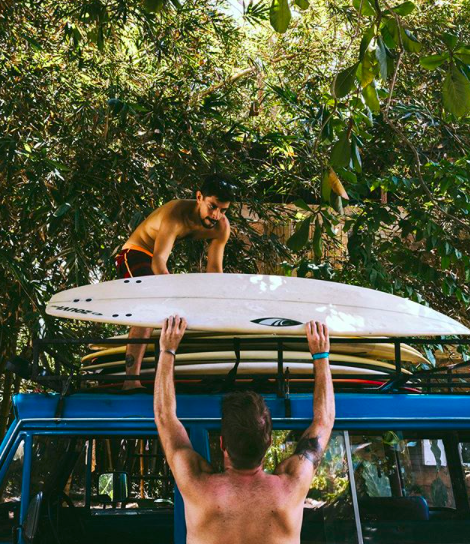
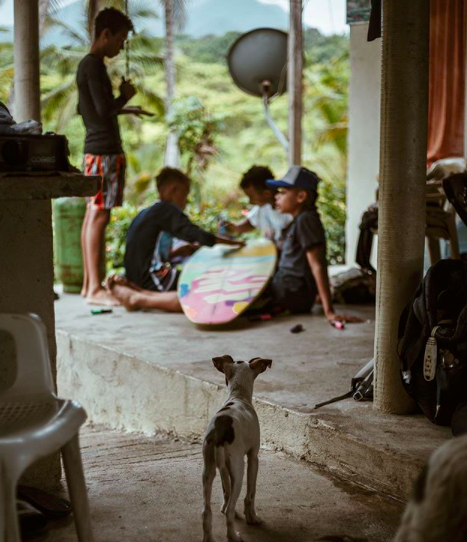
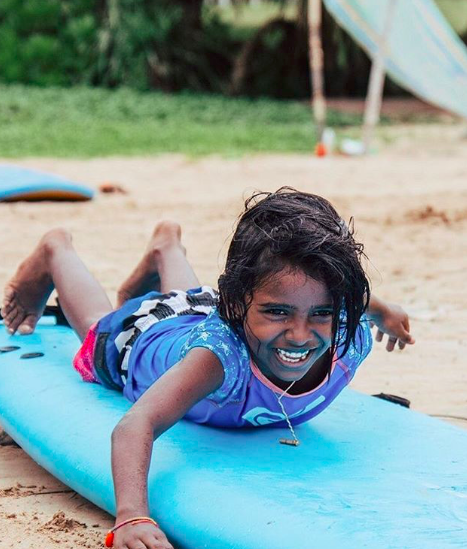
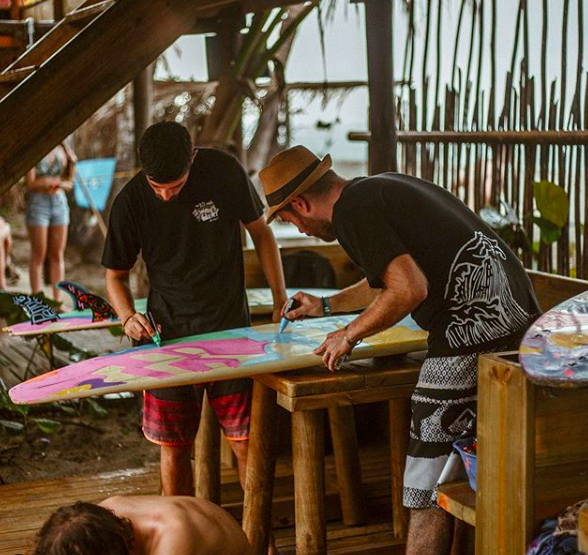
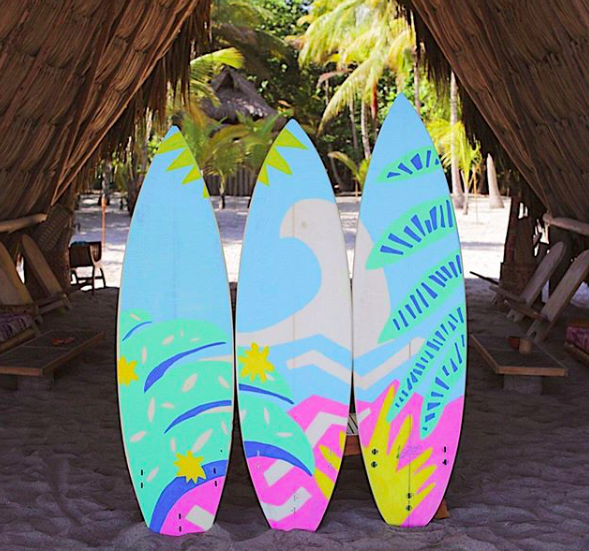
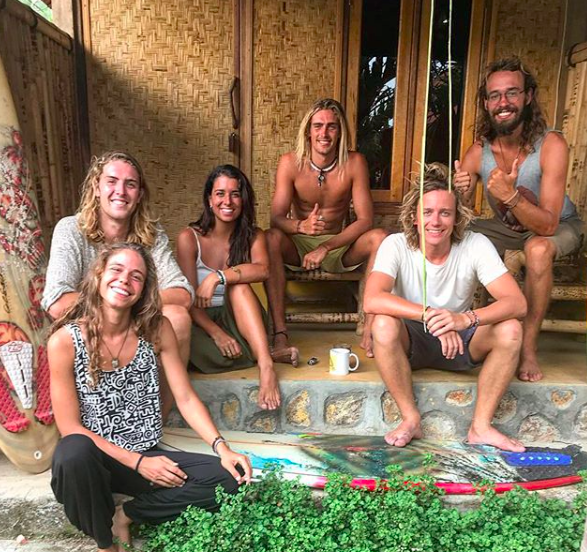






Surfing has potential for empowerment and can be extremely supportive for the development of girls to become powerful and leading women who make a change in the community. These 22 charities and non-profit organizations were able to make a change in their community by encouraging girls to go in the water, have fun and connect with each other.